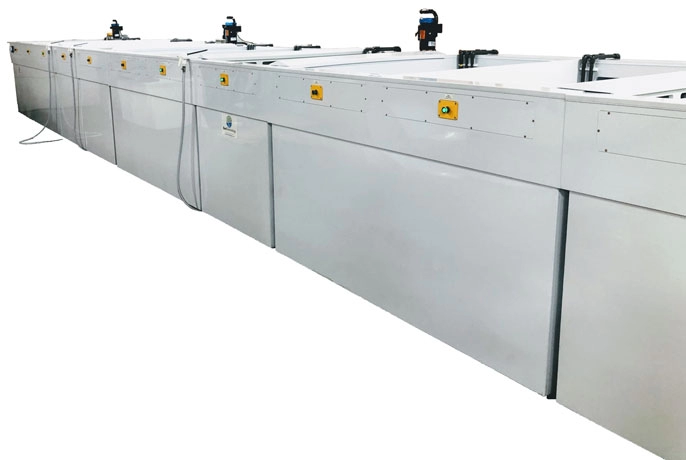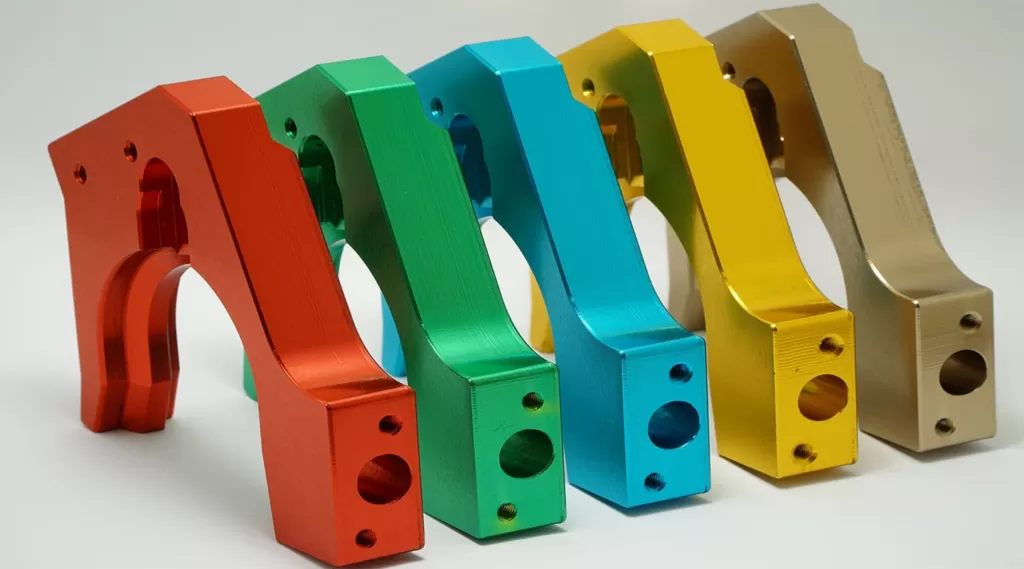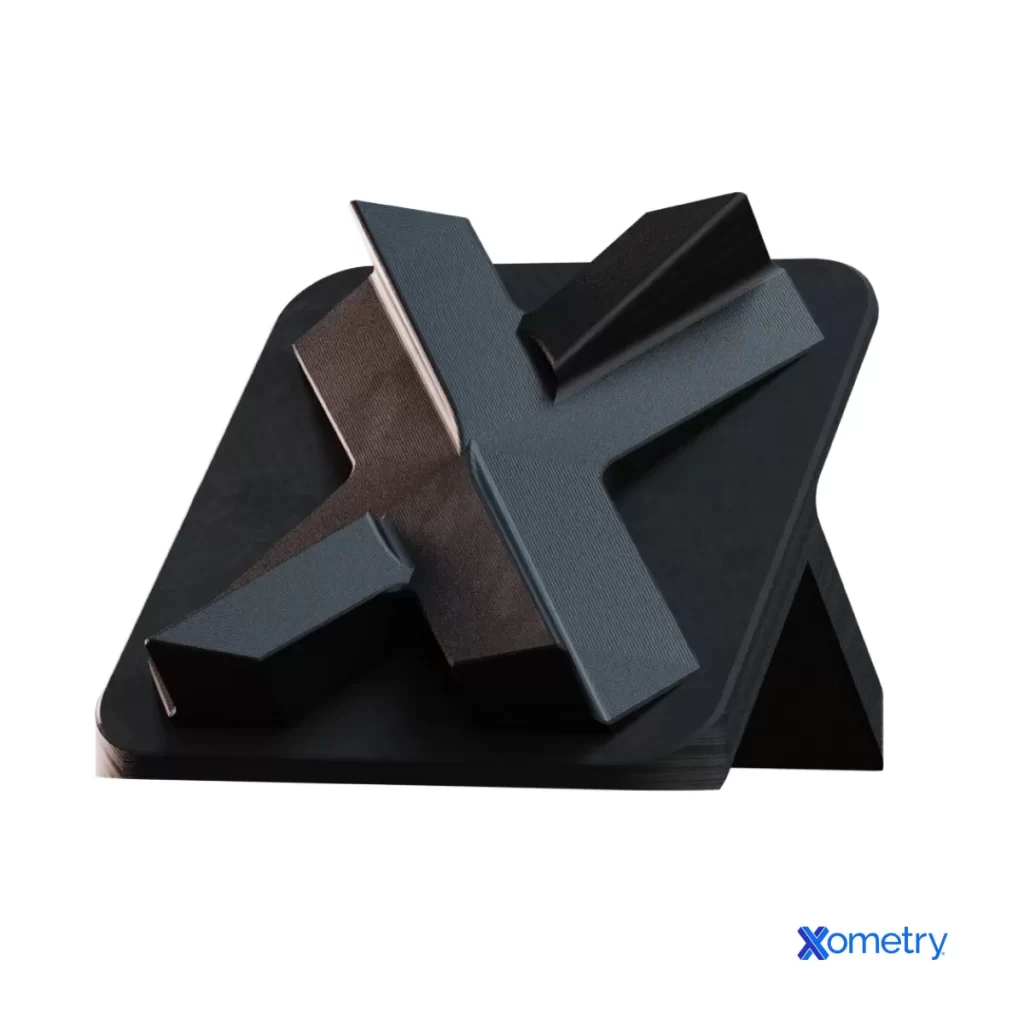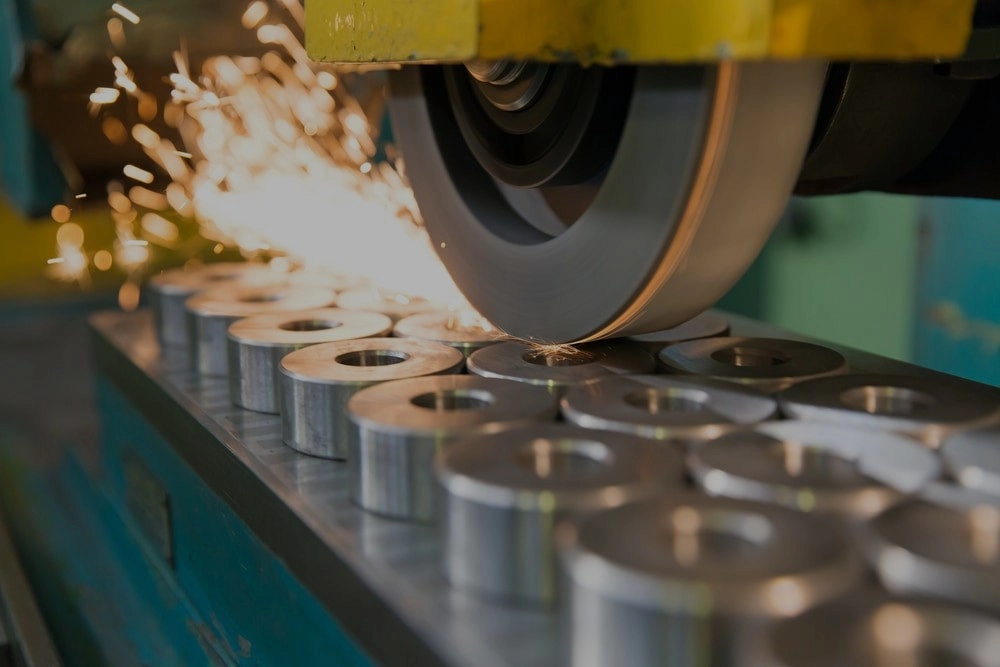What is Chromate Conversion Coating in CNC Machining
If you’re wondering what chromate conversion coating is and why it matters, here’s the scoop. Chromate conversion coating is a special type of chemical surface treatment used mainly to protect metals like aluminum and zinc from corrosion. Unlike paint or anodizing, chromate conversion forms a thin, protective layer right on the metal’s surface without adding much thickness. This makes it ideal for parts made through CNC machining where precision and surface integrity matter.
How Chromate Conversion Coating Differs from Other Coatings
- Not a paint or plating – It’s a chemical reaction that changes the metal surface itself.
- Thin but tough layer – It won’t add bulk or affect tight tolerances crucial in CNC parts.
- Improves adhesion – It’s great for prepping metal before painting or bonding.
- Corrosion protection – Offers long-lasting defense against rust and wear.
Types of Chromate Conversion Coatings and Their Role in CNC Machining
There are mainly two types of chromate conversion coatings:
- Hexavalent chromate coatings – Traditional and very effective but controlled due to environmental concerns.
- Trivalent chromate coatings – Eco-friendlier options that still deliver solid corrosion resistance aligned with RoHS standards.
Both types are widely used in CNC machining surface treatment, especially for aluminum parts where corrosion resistance is essential without compromising part dimensions or electrical properties.
In CNC machining, choosing the right chromate coating helps:
- Extend the lifespan of metal parts
- Enhance paint and adhesive bonding for assembly
- Maintain electrical conductivity where needed
At HYCNC, we balance performance and compliance by offering advanced chromate conversion coatings tailored to your CNC machined parts’ exact needs.
The Chromate Conversion Process Step by Step
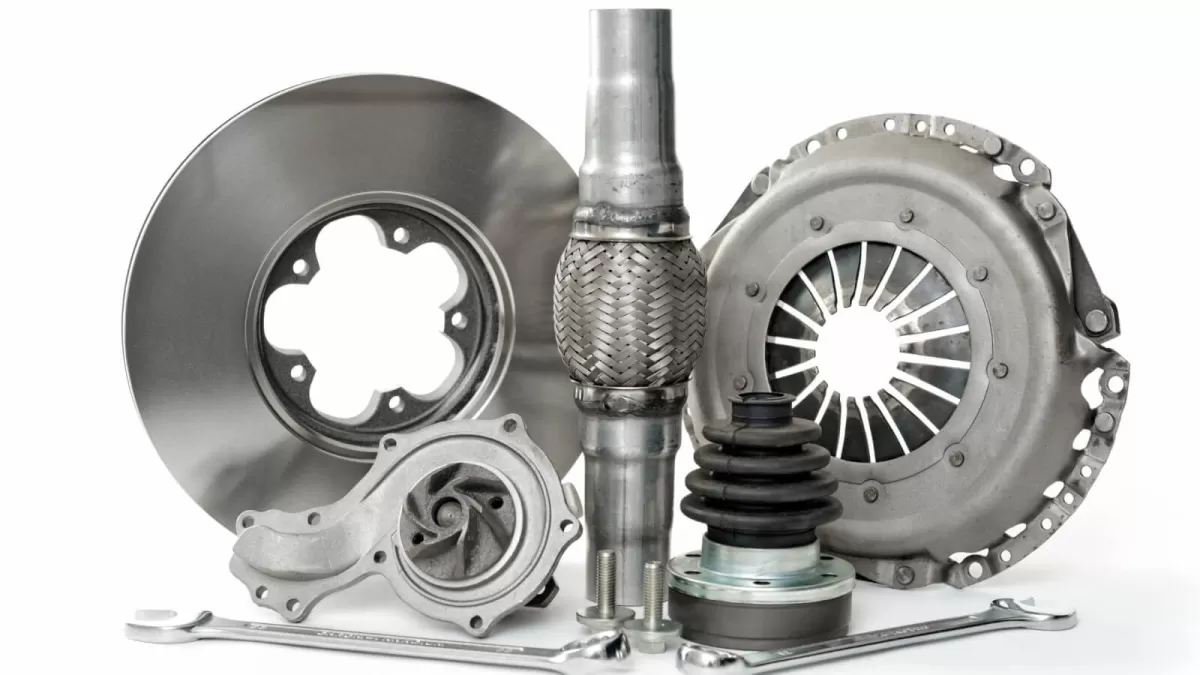
Surface Preparation Methods
Before applying a chromate conversion coating, surface prep is crucial. We start by thoroughly cleaning the CNC machined parts to remove oils, dirt, and oxidation. Methods like alkaline cleaning, acid etching, or abrasive blasting ensure the metal surface is perfectly ready. This step helps the coating bond better and provides consistent corrosion protection.
Application Techniques
At HYCNC, we use tried-and-true application methods, primarily:
- Immersion: Parts are dipped into the chromate solution for uniform coverage, ideal for complex shapes.
- Spraying: Used for larger or fixed parts, spraying offers controlled coverage.
- Flow coating: A liquid flow coats the surface, providing an even finish.
These methods help achieve a thin but effective chromate conversion coating that adds durability without impacting precision.
Chemical Reaction Details
The heart of chromate conversion is a chemical reaction between the chromium-based solution and the metal surface, typically aluminum or zinc alloys. The reaction creates a thin, corrosion-resistant layer made up of chromium oxides and other compounds. This layer protects the metal by preventing corrosion and improves bonding for paints and adhesives. It also gives the surface a distinct, slightly iridescent finish.
Post-Treatment Process
Once the coating is applied, parts undergo rinsing and drying to remove excess chemicals. Sometimes a seal rinse or baking step follows to enhance durability and reduce any free hexavalent chromium residues. This improves the overall performance of the coating, especially in demanding environments.
HYCNC’s Advanced Process for Precision
HYCNC has refined this chromate conversion process to meet strict CNC machining tolerances. We use:
- Controlled solution chemistry to maintain consistent coating thickness
- Automated application equipment for repeatable results
- Environmentally safe rinsing and drying stations
This ensures every CNC machined part gets a reliable, uniform chromate conversion coating that supports corrosion resistance and paint adhesion without compromising dimensional accuracy.
By sticking to this detailed, controlled process, HYCNC delivers metal finishing services that meet the high standards of aerospace, automotive, and electronics industries across the United States.
Benefits of Chromate Conversion for CNC Machined Parts
Chromate conversion coating offers several important advantages that make it a trusted surface finish for CNC machined parts, especially in industries demanding durability and reliability.
Superior Corrosion Resistance
One of the biggest benefits is enhanced corrosion protection. The chromate layer acts as a barrier, preventing moisture and chemicals from reaching the metal underneath. This is especially important for metals like aluminum commonly used in CNC machining, where corrosion can quickly degrade performance and lifespan.
Improved Paint and Adhesive Bonding
Chromate conversion coatings also boost paint and adhesive adhesion. The coating creates a slightly porous, chemically active surface that helps paint and adhesives stick better, leading to longer-lasting finishes and stronger bonds in assembled parts.
Retention of Electrical Conductivity
Unlike some coatings that insulate metal surfaces, chromate conversion maintains good electrical conductivity. This makes it ideal for CNC parts used in electronics and aerospace where electrical performance is critical.
Self-Healing Properties
The coating has natural self-healing abilities. If minor scratches or damages occur, the chromate compounds can regenerate a protective layer over time, slowing down corrosion and extending the part’s usable life.
Cost-Effectiveness and Scalability
Finally, chromate conversion is a cost-effective and scalable solution. The process is relatively quick and can be adapted to handle both small custom runs and large production volumes. This flexibility makes it a smart choice when balancing quality and budget for CNC components.
Together, these benefits make chromate conversion coatings a top option for CNC machining surface treatment, ensuring parts perform well and last longer in demanding environments.
Applications of Chromate Conversion in CNC Machining
Chromate conversion coating plays a crucial role across various industries where corrosion protection and enhanced surface finishing are musts for CNC machined parts. Here’s where it really makes a difference:
Aerospace Industry Uses
In aerospace, parts face extreme conditions — from moisture to temperature swings. Chromate conversion coating provides excellent corrosion resistance on aluminum and other metals. It also improves paint adhesion, making sure protective layers stick well in demanding environments. HYCNC supports aerospace clients with CNC machined components that meet stringent durability and safety standards.
Automotive Applications
Vehicles require components that resist rust and wear, especially under heat and stress. Chromate coatings extend part life by protecting aluminum and steel surfaces against corrosion. The coating also helps with adhesive bonding for paint or sealants, improving the overall finish and durability. At HYCNC, we customize treatments to fit auto parts’ specific conditions and performance needs.
Electronics Industry Relevance
Electronics often involve delicate parts made from lightweight metals where electrical conductivity must be maintained. Chromate conversion coatings provide non-insulating protection that guards against oxidation without compromising electrical performance. This balance is why many electronic components benefit from HYCNC’s precise surface treatment services.
Construction and Military Hardware
In rugged environments like construction sites or military use, metal parts must withstand corrosion, abrasion, and harsh chemicals. Chromate conversion coatings deliver a self-healing surface, repairing minor scratches to keep protection intact. This is vital for structures and equipment exposed to outdoor elements. HYCNC helps customize coatings to match these tough applications.
Customization by HYCNC for Industries
We understand different industries have varying demands for surface finishes. HYCNC offers tailored chromate conversion processes to match your CNC machined parts’ material, usage, and environmental needs. Whether you need RoHS-compliant coatings for electronics or high-performance corrosion resistance for aerospace, we design solutions that fit your project perfectly.
By choosing the right chromate conversion coating through HYCNC, you get coatings that extend part life, enhance functionality, and meet industry-specific standards—all while supporting efficient CNC machining workflows.
Environmental Considerations for Chromate Conversion Coating
Hexavalent Chromium Challenges and Regulations
One of the biggest environmental concerns with chromate conversion coating is the use of hexavalent chromium. This form of chromium is highly toxic and carcinogenic, which has led to strict regulations in the U.S., including limits under OSHA and EPA guidelines. Many industries now face pressure to reduce or eliminate hexavalent chromium use to protect workers and the environment.
Eco-Friendly Alternatives Like Trivalent Chromium
To address these challenges, trivalent chromium coatings have become a popular eco-friendly alternative. Trivalent chromium offers similar corrosion resistance and paint adhesion benefits but with significantly lower toxicity and environmental impact. This makes it a safer choice for both manufacturers and end-users.
HYCNC’s Sustainable and Compliant Processes
At HYCNC, we prioritize environmentally responsible chromate conversion coatings by adopting RoHS-compliant trivalent chromium processes whenever possible. Our advanced techniques ensure we meet all federal and state environmental regulations without sacrificing quality or performance.
- We use closed-loop chemical systems to minimize waste and chemical exposure.
- Our coatings provide excellent corrosion protection while keeping safety standards top priority.
- By focusing on greener coating options, we help U.S. businesses stay compliant and sustainable in their CNC machining surface treatments.
Choosing HYCNC means you get industry-leading metal finishing services that balance high-performance results with environmental care, making your parts reliable and regulatory-ready.
Why Choose HYCNC for Chromate Conversion Services
When it comes to chromate conversion coating for CNC machined parts, HYCNC stands out for several reasons.
Expertise and Facilities
We bring years of experience in metal finishing services, specializing in CNC machining surface treatment. Our team understands the nuances of aluminum corrosion protection and other metal substrates. With advanced equipment and precision-controlled processes, we deliver consistent, high-quality coatings that meet strict industry standards for aerospace, automotive, and electronics clients.
Customized Solutions
At HYCNC, we know every project is different. That’s why we offer tailored chromate conversion treatments to fit your specific needs—whether you require enhanced paint adhesion, electrical conductivity retention, or extra corrosion resistance. Our solutions adapt to your application, ensuring the best performance and efficiency for your CNC machined parts.
Environmental and Safety Compliance
We take environmental impact seriously. HYCNC uses RoHS-compliant coatings and follows all current regulations around hexavalent chromium concerns. Our processes emphasize eco-friendly alternatives like trivalent chromium when possible, supporting sustainable manufacturing without compromising quality or durability.
Get in Touch for Your CNC Chromate Conversion Needs
Ready to improve your parts with reliable, cost-effective chromate conversion coatings? Contact HYCNC today for a consultation. Let us help you find the perfect surface treatment solution tailored to your manufacturing goals and compliance requirements.
Chromate Conversion FAQs for CNC Machining Surface Treatment
What metals are suitable for chromate conversion coating
Chromate conversion works best on aluminum, zinc, cadmium, magnesium, and their alloys. It enhances corrosion protection especially on aluminum parts commonly used in CNC machining. Steel can be treated but usually requires different surface prep or coatings for optimal results.
How does chromate conversion compare with anodizing
- Chromate conversion forms a thin chemical layer that provides corrosion resistance and paint adhesion without significantly changing the metal’s dimensions.
- Anodizing is an electrochemical process that thickens the oxide layer on aluminum, offering greater hardness and durability.
In short, chromate conversion is often preferred when maintaining electrical conductivity and dimensional tolerance is crucial, whereas anodizing is better for heavy-duty wear resistance.
Is chromate conversion environmentally safe
Traditional chromate coatings sometimes use hexavalent chromium, a toxic and regulated substance. However, modern advances, including HYCNC’s processes, focus on trivalent chromium coatings which are much safer and comply with RoHS environmental standards. Sustainable and eco-friendly methods minimize risks in industrial settings.
How long does the chromate conversion process take
Typically, the process is quick—ranging from 30 seconds to a few minutes depending on part size, metal type, and coating thickness. Faster turnaround makes it ideal for large production runs in CNC machining with tight schedules.
Can chromate conversion handle large-scale CNC projects
Absolutely. The process is scalable and adaptable for both small precision parts and large batch runs. Facilities like HYCNC offer customized solutions tailored to the volume and complexity of your parts, ensuring consistent coating quality regardless of project size.

